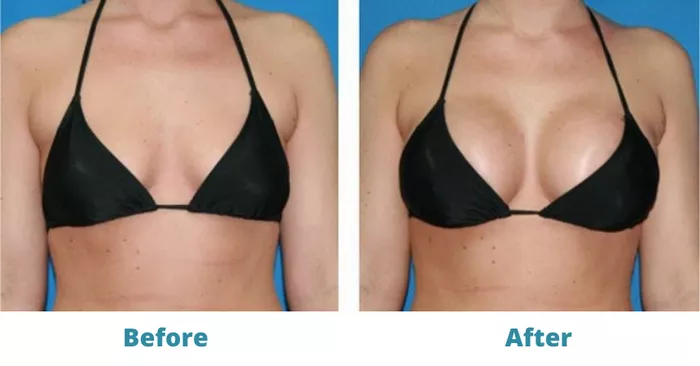Breast implants are a popular cosmetic surgery procedure that can enhance the size and shape of the breasts. However, some women may experience pain or discomfort in their breasts years after the procedure. In this article, we will explore the reasons why breast implants may hurt 2 years later, the solutions to alleviate the pain, and when to seek medical attention.
Reasons Why Breast Implants Hurt 2 Years Later
Breast implants are not designed to last a lifetime, and over time they may cause pain or discomfort. Here are some reasons why breast implants may hurt 2 years later:
Capsular contracture: Capsular contracture is a condition that occurs when scar tissue forms around the breast implant, causing the breast to become hard and painful. This condition can occur at any time after breast implant surgery, but it is more common in the first few years after the procedure.
Implant rupture or leakage: If your breast implant ruptures or leaks, it can cause pain, discomfort, and other complications. Ruptured or leaking implants can occur at any time after breast implant surgery, but they are more common in the first few years after the procedure.
Infection: Infection is a rare complication of breast implant surgery, but it can occur at any time after the procedure. Infection can cause pain, swelling, and other symptoms.
Implant displacement: Over time, breast implants may shift or change position, causing discomfort or pain. This can occur if the implant pocket is too large or if the implant is not properly supported.
Breast tissue changes: Changes in breast tissue, such as weight gain or pregnancy, can cause discomfort or pain in the breasts. These changes can occur at any time after breast implant surgery.
Solutions to Alleviate Breast Implant Pain
If you are experiencing pain or discomfort in your breasts 2 years after breast implant surgery, there are several solutions that can help alleviate the pain. These solutions include:
Pain medication: Over-the-counter pain medication, such as ibuprofen or acetaminophen, can help alleviate breast implant pain.
Massage: Breast massage can help alleviate discomfort and pain caused by breast implants. Your surgeon can provide instructions on how to perform breast massage.
Compression garments: Compression garments, such as sports bras, can help alleviate breast implant pain by providing support to the breasts.
Implant removal: If the pain or discomfort is severe or persistent, implant removal may be necessary. Your surgeon can discuss the risks and benefits of implant removal with you.
When to Seek Medical Attention
If you are experiencing severe or persistent pain or discomfort in your breasts 2 years after breast implant surgery, it is important to seek medical attention. Here are some signs that indicate when to seek medical attention:
Severe pain or discomfort: If you are experiencing severe pain or discomfort in your breasts, it may be a sign of a more serious complication.
Swelling or redness: If you notice swelling or redness in your breasts, it may be a sign of infection or other complication.
Changes in breast shape or size: If you notice changes in the shape or size of your breasts, it may be a sign of a more serious complication, such as implant rupture or capsular contracture.
Fever or chills: If you develop a fever or chills, it may be a sign of infection or other complication.
Conclusion
Breast implants are a popular cosmetic surgery procedure that can enhance the size and shape of the breasts. However, some women may experience pain or discomfort in their breasts years after the procedure. The reasons why breast implants may hurt 2 years later include capsular contracture, implant rupture or leakage, infection, implant displacement, and breast tissue changes. If you are experiencing breast implant pain, there are several solutions that can help alleviate the pain, including pain medication, massage, compression garments, and implant removal. If you are experiencing severe or persistent pain or other symptoms, it is important to seek medical attention. By understanding the causes and solutions of breast implant pain, you can make an informed decision about your breast health and cosmetic goals.
FAQs
1. Can breast implants cause pain years later?
While breast implants typically do not cause pain years after surgery, some individuals may experience discomfort or pain due to complications such as capsular contracture (scar tissue tightening around the implant), implant rupture, or implant malposition. It’s essential to consult with your plastic surgeon if you experience persistent or new-onset pain in your breast area to determine the cause and appropriate management.
2. How do I know if something is wrong with my breast implant?
Signs that something may be wrong with your breast implant include changes in breast appearance or feel, such as asymmetry, distortion, or swelling. Symptoms like pain, discomfort, or unusual sensations in the breast area, as well as redness or warmth, may also indicate issues with the implant. If you notice any of these signs or symptoms, it’s crucial to seek evaluation from your plastic surgeon for proper diagnosis and treatment.
3. What does a damaged breast implant feel like?
A damaged breast implant may feel different from a healthy one. You may notice changes in the shape, size, or texture of the breast, such as asymmetry, distortion, or palpable lumps or ridges. Additionally, you may experience pain, discomfort, or unusual sensations in the breast area. If you suspect that your breast implant is damaged, it’s important to consult with your plastic surgeon for evaluation and appropriate management.
4. Can your body reject breast implants years later?
While breast implants are not typically rejected by the body in the same way that organ transplants are, complications such as capsular contracture or implant rupture can occur years after surgery. Capsular contracture, for example, is a condition where the body’s immune response causes scar tissue to tighten around the implant, leading to pain and distortion of the breast. If you experience symptoms suggestive of implant-related complications, it’s essential to consult with your plastic surgeon for evaluation and management.


